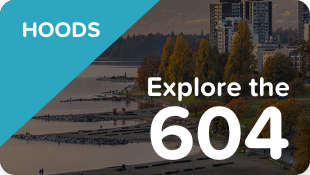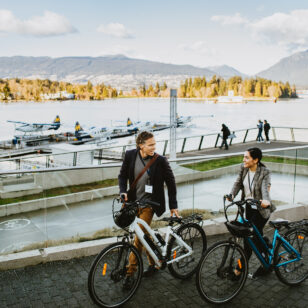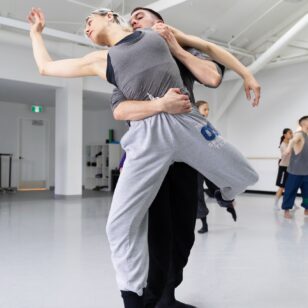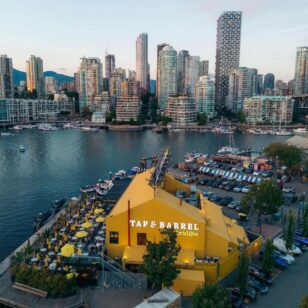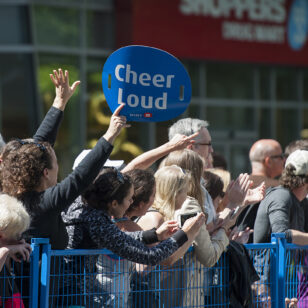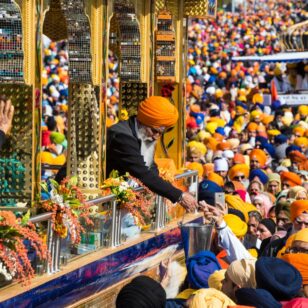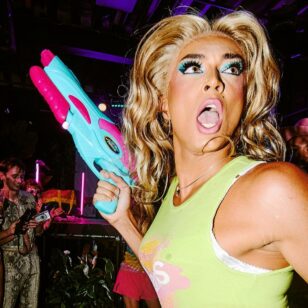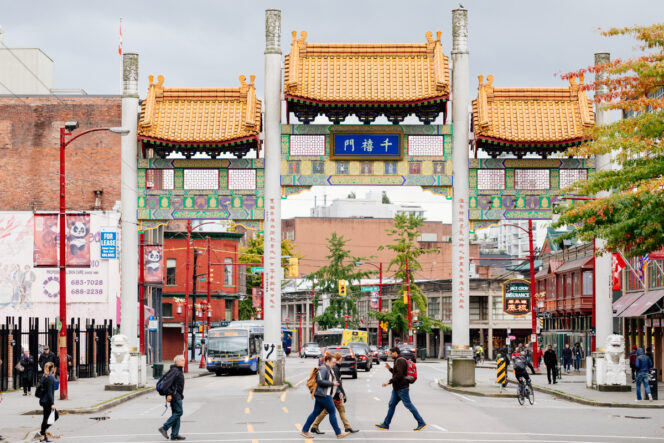
Chinatown Gate. Entrance to Chinatown on Pender St
Vancouver is located on the unceded traditional and ancestral territories of the xʷməθkʷəy̓əm (Musqueam), Sḵwx̱wú7mesh (Squamish), and səlilwətaɬ (Tsleil-Waututh) Nations. As well, diverse settler communities call the city home, contributing their stories to the evolution of Vancouver.
Vancouver Heritage Foundation (VHF), a charitable organization, was founded in 1992 and is committed to conserving and aiding in the appreciation of the city’s diverse heritage. In the past, “heritage” was defined by the organization as “built heritage,” in other words, buildings and architecture but as Emily Lonie, Executive Director, explains, this definition has evolved and expanded considerably to include stories that make up Vancouver’s vibrant social and cultural fabric. “Lots of our programs are specifically tailored to look at this more expansive definition of heritage, which includes living heritage, intangible heritage—more storytelling and connection to place rather than necessarily structures,” she says.
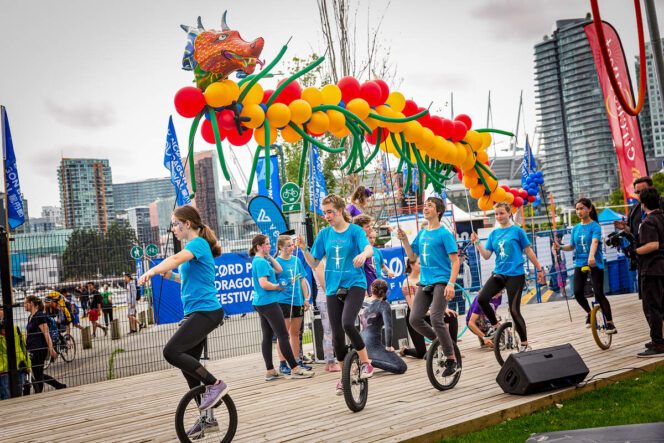
Dragon Boat Festival in False Creek. Dragon Dance and unicyclists. Destination Vancouver/Vision Event Photography Inc.
Lonie says that Vancouver contains incredibly rich and unique places and stories. In terms of built forms, it features some distinctive architecture, the most iconic being Vancouver Specials, two-storey residential houses that became popular between 1965 and 1985 due to their ability to maximize square footage while adhering to City building requirements. Vancouver Specials can still be found all around the city, many of them renovated to look more modern.
Not only does Vancouver feature noteworthy architecture, but it also has a wealth of wonderful stories. Lonie says, “The depth and breadth of the stories of various people who have made Vancouver their home, and the diversity in the city is incredible. And the way the city developed is unique in terms of some of its neighbourhood character.” She says that Vancouver is often referred to as “a city of neighbourhoods,” highlighting the character and stories embedded in different parts of the city.
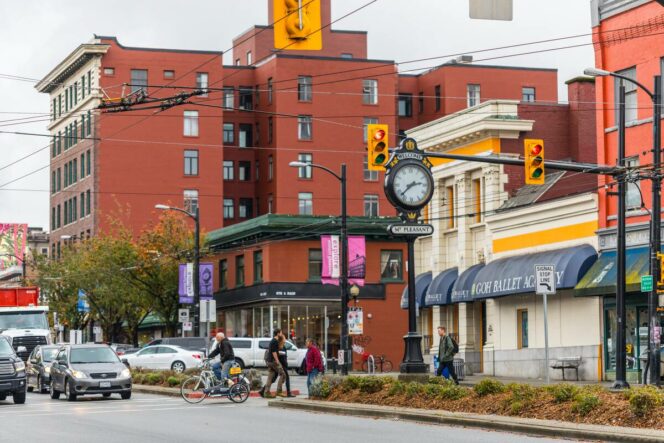
Main Street Mount Pleasant
Lonie draws particular attention to the people who have shaped these neighbourhoods. For example, she talks about individuals of Vietnamese descent who moved to Kingsway and transformed the area. “They created this incredible community with restaurants and business reflecting that Vietnamese community—and that community still exists,” she says. Many of these original owners continue to run businesses on Kingsway and have unique narratives about their experiences in the neighbourhood.
Because many of these important stories were overlooked in the past, VHF is working to make appreciation of the city’s heritage much more inclusive and diverse. “Definitely not everybody sees themselves in that conversation yet. So, we try our best to make connections with community members and try and let those communities speak for themselves,” she says. Lonie adds that facilitating a platform for previously silent voices means recognizing all aspects of Vancouver’s heritage. “It’s not always pretty. We’re not designed to glorify. We recognize where we’ve come from so we can build on it and learn from it, and be better as a society,” she says.
Part of this recognition involves challenging the colonial biases and impacts of previous notions of heritage, acknowledging Vancouver’s location on unceded traditional and ancestral territories, and prioritizing stories pre-contact. For instance, VHF has an online hub for Vancouver House Styles, which features traditional Coast Salish plank houses. “We made sure [the hub] doesn’t just start at a specific point when colonial settlement happened, so we’re discussing Indigenous built forms as well,” Lonie says. Among many ways of facilitating dialogue, VHF brings Indigenous communities into discussions as much as possible, forms partnerships for various initiatives, and invites elders to speak at their events, with appropriate compensation.
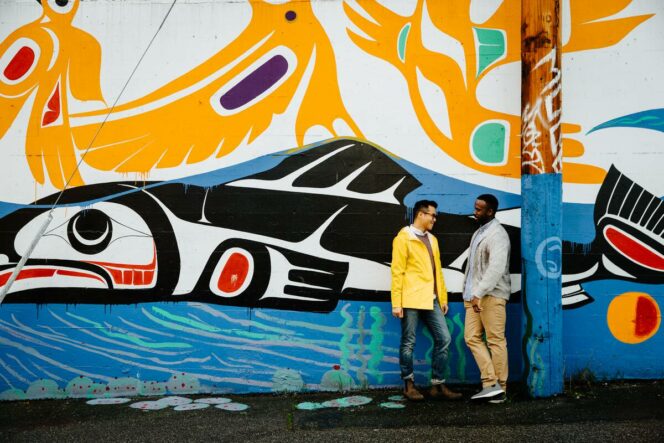
Men talking in front of mural in Mount Pleasant; Destination Vancouver/Hubert Kang
Because heritage is such an excitingly expansive term, the range of VHF’s work is broad. Firstly, VHF continues their grants administration related to building conservation. Lonie says that a significant challenge for Vancouver’s heritage is related to development. The gorgeous ocean and mountains make the city beautiful but also place boundaries on the land available for development. As a result, there is pressure to remove older buildings and replace them with forms that maximize space. “There’s always that push and pull challenge between development and preserving buildings that have character merit or heritage value,” she says.
Part of encouraging this preservation is through incentives. VHF administers two major grant programs, which are funded through the City of Vancouver. The first is the Heritage Conservation Grant, launched in 2019, for sites on the Vancouver Heritage Register or those that will be applying to get on it. These grants are given in two categories: Planning Project Grants, which match successful applicants with a Heritage Consultant; or a Conservation Project Grant that helps with the costs of conserving heritage value (e.g., restoring original wood windows). The next intake will be in October 2023.
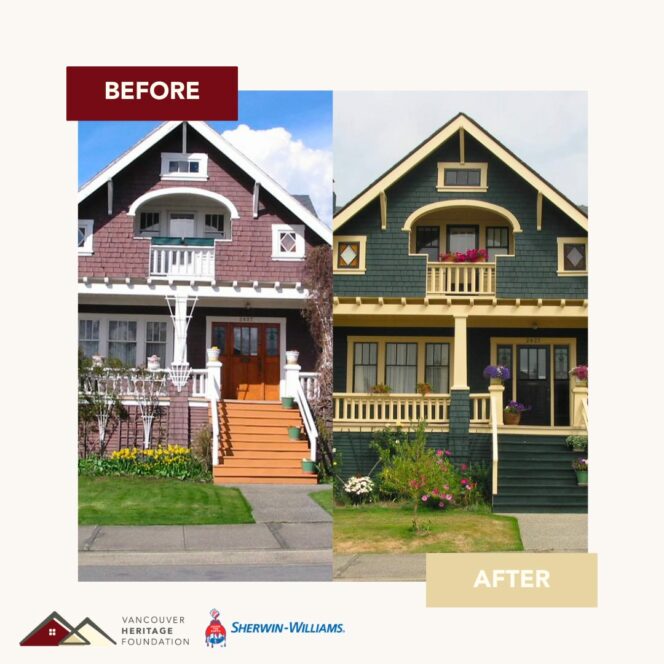
Photo: Vancouver Heritage Foundation
And the other major grant program involves Heritage Energy Retrofits (currently at capacity but may be renewed), which helps fund energy retrofits for homes on the Vancouver Heritage Register or those built before 1940. Many people don’t realize the important role that conserving heritage buildings can play in greening Vancouver. “Heritage is incredibly important from a sustainability perspective,” Lonie says.
In addition, VHF offers all sorts of resources, workshops and talks, and events that celebrate the city’s heritage. Lonie recommends Map Guides for historic neighbourhoods such as Chinatown, the Japanese Canadian district, and Kitsilano northeast. They’re available for download; as well, some print copies are available at the VHF office and with various community groups. The maps provide a suggested route, as well as a historical overview and information about key stops.
As well, VHF has an interactive online Heritage Site Finder, which lists and maps every property and place on the Vancouver Heritage Register. “If you’re walking around Vancouver and you want to get a sense of all the various heritage buildings around you, you can essentially do your own walking tour with the map,” Lonie says.
For visitors staying downtown, she recommends using the Heritage Site Finder to tour special commercial buildings such as the Marine Building (355 Burrard Street) or the Rogers Building (470 Granville Street) “Sometimes people miss what’s so special about these places by just looking at them at the street level,” she says, suggesting looking up or viewing these buildings from different angles as well.
VHF also hosts both in-person and virtual lectures, talks, and lunch-and-learns on a range of topics, including “Linking Time: Contemporary Cemetery Design within Historic Settings” (March 28, 7-8:30pm, University Women’s Club at Hycroft Manor) and “90 Years of the City of Vancouver Archives” (April 13, 12-1pm, online). See here for the current schedule of events.
They’ll also be leading a series of summer walking tours (tickets go on sale in May) featuring distinctive neighbourhoods. “Those are a great way to travel around a certain part of the city with a really knowledgeable heritage expert,” Lonie says. An upcoming walking tour is “Milk, Suitcases, and Vegetables: A Stroll in Upper Mount Pleasant” (March 25, 10am-noon, 1pm-3pm, $30 + tax). Register here.
Overall, VHF engages in work to help people in the city see themselves reflected in knowledge and conversation around heritage. During the upcoming year, they’re aiming to add more sites to their Places That Matter (PTM) program, which was initially started in 2011 to celebrate the 125th anniversary of Vancouver’s incorporation as a city. “This year we’re hoping to open that up to community nominations, which is exciting,” Lonie says.
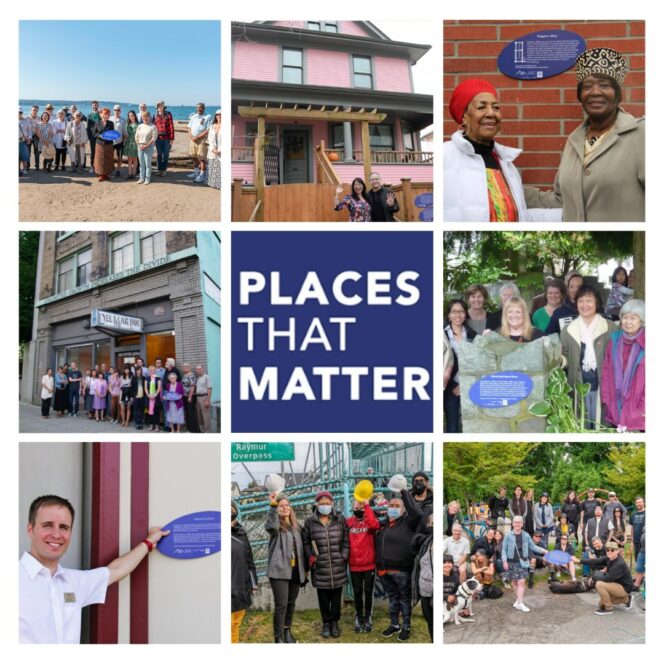
Photo: Vancouver Heritage Foundation
Selected sites receive a plaque, photographs, historical research and a collection of oral accounts of that place, a website profile, and a ceremony to mark their entry into PTM. Currently, the PTM program includes Hogan’s Alley, a former hub of Vancouver’s Black community, and Davie Street Village, which emerged in the 1970s as a key gathering place for the city’s gay community. Stay tuned for more Places That Matter as the Vancouver Heritage Foundation continues their vital work in celebrating the city’s diverse heritage.
More information can be found on the VHF website.










